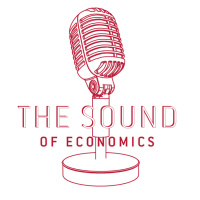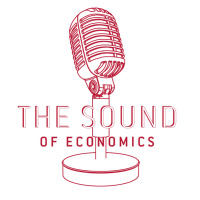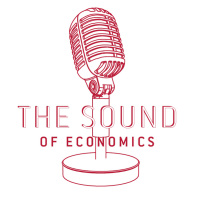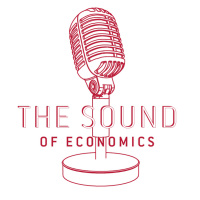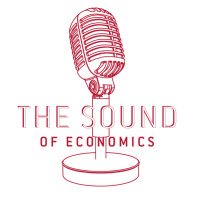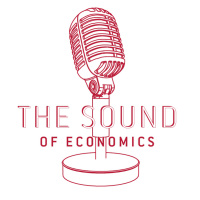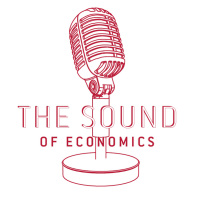Synopsis
Bruegel is the European think tank working in the field of international economics. Established in 2005, Bruegel is independent and non-doctrinal. It seeks to contribute to European and global economic policy-making through open, fact-based and policy-relevant research, analysis and debate.
Episodes
-
Exiting the great lockdown?
17/04/2020 Duration: 52minIn this episode of The Sound of Economics Live, we discuss European coordination, national responses, and local effects in moving on the next phase of containment of the COVID-19 pandemic Maria Demertzis, Deputy Director Thomas Hale, Associate Professor in Global Public Policy, Blavatnik School of Government; Fellow of St Antony's College, University of Oxford Jean Pisani-Ferry, Senior Fellow Giuseppe Porcaro, Head of Outreach and Governance Additional speakers to be confirmed
-
S6: Did the Eurogroup save the day?
10/04/2020 Duration: 53minAfter its longest meeting ever, the Eurogroup reached an agreement yesterday evening. What does the agreement say? What does it mean in terms of the emergency reaction to the economic fallout of the COVID-19 pandemic? What does it mean, more broadly, for the future of Europe? This week, Giuseppe Porcaro is joined by Maria Demertzis, André Sapir and Guntram Wolff to discuss whether the Eurogroup can save the day. This podcast is a member of the Europod network. The podcast started by the participants giving their view on the deal that was closed last night by the Eurogroup. Guntram Wolff noted that is was good to have a deal, even if it is small in his view. André Sapir also expressed reserved satisfaction for the deal. He was however not surprised, as more could only come from the heads of state and that it is part of the Eurogroup’s habits to increase firepower over time. Maria Demertzis found it is surprising that the longest ever Eurogroup meeting led to such a small result and though this was a bad sig
-
S6: Mythbusters: debunking economic myths
03/04/2020 Duration: 27minEconomics seems to be full of myths that are hard to debunk. Will robots take our jobs? Are trade deficits bad? Is China such a big economy simply because of the size of its population? This week, Nicholas Barrett, Maria Demertzis, Marta Domínguez-Jímenez and Niclas Poitiers put on the detective cap and become Bruegel's own economic mythbusters. Disclaimer: this podcast was recorded on the 3rd of March 2020, before the COVID-19 lockdown was put in place in Europe and the US. Hence, some parts of it are no longer applicable. This podcast is a member of the Europod network.
-
S6: The macroeconomic policy response to the COVID-19 crisis
31/03/2020 Duration: 50minFrom the European Stability Mechanism (ESM) to "coronabonds", the EU seems to be struggling to find an appropriate mechanism to tackle the economic crisis created by the COVID-19 pandemic. What is really the best option? And how do we ensure that, once the pandemic is over, we return to sustainable debt levels and competitive economies? This week, Giuseppe Porcaro is joined by Lucrezia Reichlin, professor of Economics at the London Business School, Grégory Claeys and Guntram Wolff to discuss the macroeconomic policy response to the COVID-19 crisis. This podcast is a member of the EuroPod network.
-
S6: Banks and loan losses in the pandemic turmoil
25/03/2020 Duration: 54minThe current pandemic is shaking the financial system. How can banks react ? Is a consolidation of the financial system in Europe needed in order to respond to this crisis ? Will our economies suffer from this pandemic as much as they did in 2008 ? This week, Giuseppe Porcaro is joined live by Guntram Wolff and Nicolas Véron to discuss banks and loan losses in the pandemic turmoil. This podcast is a member of the EuroPod network.
-
S6: How can the EU prevent our economies from shutting down?
18/03/2020 Duration: 32minFrom flights cancelled and restaurants closed to companies either slowing or stopping their production, COVID-19 is shutting our economies down. How can the EU reboot them? What should be our fiscal and monetary response to the pandemic? Will our economic system ever be the same once everything is over? This week, Guntram Wolff is joined by Jean Pisani-Ferry and Maria Demertzis to discuss the EU's response to the coronavirus. This podcast is a member of the EuroPod network. Disclaimer: due to the current circumstances, this episode was recorded remotely. Therefore, the sound quality isn't the same as in our previous episodes.
-
S6: Where are the women in economics?
08/03/2020 Duration: 31minThe field of economics, like many others, seems to be biased towards men. How are women disadvantaged? Makfire Alija and Katja Knezevic join Nicholas Barrett and Niclas Poitiers to discuss the systematic hurdles.
-
S6: Coronavirus: the economic prognosis
06/03/2020 Duration: 27minThe coronavirus is going to hit the global economy hard, but how hard? What can policymakers plan for the months ahead? Nicholas Barrett asks Guntram Wolff and Maria Demertzis about economic symptoms and treatments
-
S6: The European Green Deal rules
05/03/2020 Duration: 22minWhen it comes to global carbon emission is a tax the best form of defence? To make the European Green Deal work, the EU is considering a levy on carbon-intensive goods manufactured beyond its borders. But will a carbon border tax spawn a massive bureaucracy and lead to accusations of protectionism? To find out, Nicholas Barrett talked to Georg Zachmann and Ben McWilliams from Bruegel and Gabriel Felbermayr, President of the Kiel Institute for the World Economy
-
S6: Is the EU a superpower?
03/03/2020 Duration: 33minAs China and the US battle for global supremacy, the EU seems to remain in the shadows. But what if the EU had been shaping the world economy all along without anybody noticing? Could its soft power be strong enough to shape regulations all over the world? What impact does such influence have over its own economy? This week, Giuseppe Porcaro and Guntram Wolff are joined live by Ashoka Mody, Professor in International Economic Policy at the Princeton University, and Anu Bradford, author of the book "The Brussels Effect: How the European Union rules the world".
-
S6: Will globalisation survive the Coronavirus?
28/02/2020 Duration: 44minAs the Coronavirus continues to spread, schools have closed, flights have been canceled and entire towns have been quarantined. Most of those who contract the virus will undoubtedly survive, but can the same be said for globalisation? Is it time for economists to question the virtue of international supply chains? Should policymakers in the west be thinking twice about our material dependency on Chinese manufacturing? And is an economic contagion as dangerous as its medical equivalent? To discuss this, Nicholas Barrett is joined by Nicolas Veron and Niclas Poitiers, and down the line from Spain, by Alicia Garcia Herrero.
-
S6: Can the European Green Deal kill the single market?
25/02/2020 Duration: 19minThe European Green Deal is one of the landmarks of Ursula von der Leyen's Commission. But, without an ambitious investment behind it, what could be its potential implications for the EU? Could it go as far as to threaten the EU's single market? This week, Renew Europe's vice-president, MEP Luis Garicano, joins Guntram Wolff and Maria Demertzis to discuss not only the European Green Deal but also the EU Budget and the Banking Union. Disclaimer: this episode was recorded on the 20th of February, before Bruegel hosted the event "The Ressurection of the European Banking Union".
-
S6: From Brussels with love? Russia's economic dependence on the EU
19/02/2020 Duration: 22minDespite the political antagonism, the EU and Russia are not only geographically, but also economically, reliant on each other: European houses are heated using Russian natural gas and Russia is highly dependent on European investment. Should the EU develop closer political ties with Russia? How much leverage does the EU have when dealing with the Kremlin? This week, Nicholas Barrett is joined by Niclas Poitiers and Marta Domínguez-Jímenez to discuss European foreign direct investment in Russia.
-
S6: Can hybrid threats disrupt the financial system?
17/02/2020 Duration: 20minFrom cashless payments to digital banking, finance has become intangible and global. But, while speed and convenience have made our international transactions easier, have we become more vulnerable? How can the EU respond to the increased risk of hybrid threats? This week, Nicholas Barrett is joined by Jukka Savolainen, Director of Community of Interest “Vulnerabilities and Resilience” at the European Centre of Excellence for Countering Hybrid Threats, and Maria Demertzis, to discuss the risks that hybrid threats pose to the financial system.
-
S6: The EU's plan to catch up on artificial intelligence
14/02/2020 Duration: 29minWhile the US and China have been setting the pace when it comes to Artificial Intelligence, the European Union seems to be lagging behind. What are the Commission's plans to finally catch up? Will AI increase the gap between big and small companies? Nicholas Barrett asked Julia Anderson and Guntram Wolff
-
S6: Industrial revolutions might not be as fun as they look
05/02/2020 Duration: 39minAI promises a new industrial revolution but history warns us that industrial revolutions aren't always that fun for people in the eye of the storm. This week, Nicholas Barrett and Maria Demertzis spoke with Dr. Carl Frey, author of the book "The technology trap: capital, labor, and power in the age of automation", and Robert D. Atkinson, President of Information Technology and Innovation Foundation (ITIF), about how artificial intelligence will affect the job market.
-
S6: The science of Brexit
29/01/2020 Duration: 27minOn Saturday morning, the United Kingdom will wake up outside the European Union. After 37 years of collaboration, how will Brexit affect research and innovation in Europe and in the UK? What should be the next steps undertaken by both in order to maintain the same level of cooperation? This week, Nicholas Barrett is joined by Maria Demertzis, Guntram Wolff and Michael Leigh, Senior Adjunct Professor of European Studies at the Johns Hopkins University, to discuss a post-Brexit agreement for research and innovation.
-
S6: AI in Europe: a conversation with Google's CEO
20/01/2020 Duration: 35minIt seems almost inevitable that Google will be big part of Europe's future. And Europe will be a huge part of Google's too. This week, Alphabet, Google's parent company, hit $1 trillion market cap for the first time. Can Google's AI be socially beneficial? Are big tech companies intrinsically bad? This week, Guntram Wolff talked to Google and Alphabet's CEO, Sundar Pichai.
-
S6: Banking after Brexit
16/01/2020 Duration: 27minWill Brexit damage Britain's financial services industry? Or is talk of its diminished status just a storm in a teacup? The City of London could move closer to Wall Street or it might become "Singapore-on-Thames". Nicholas Barrett talks to Rebecca Christie about banking after Brexit.
-
Paying for the European Green Deal
15/01/2020 Duration: 31minThe European Commission has presented its Just Transition Fund to help regions still dependent on fossil fuel as they move towards green energy. But where does the money come from and is it enough to make Europe carbon neutral by 2050? Should the EU re-write its fiscal rules to encourage sustainable investment? And should environmentalists be optimistic? Nicholas Barrett asked Simone Tagliapietra and Grégory Claeys.














